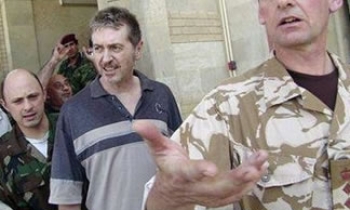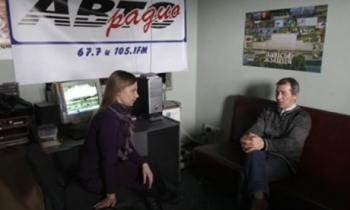A Pakistani journalist abducted in the North West Frontier Province (NWFP) last month along with a friend was rescued Wednesday by law enforcing agencies from a tribal area, according to news reports.

Qalander and Niaz Mohammad, a local businessman, had last been seen near Mohammad’s home in Peshawar. Qalander's abduction had triggered a wave of protests by journalists and their organisations both in Pakistan and abroad.
Minister for Information Mohammad Ali Durrani informed the upper house of the parliament that Suhail Qalander, resident editor of Urdu newspaper Daily Express in Peshawar, capital of NWFP, was recovered from the Khyber Agency area. The minister did not give details as to who had kidnapped the journalist and whether any arrest had been made.
Khyber Agency is one of the seven tribal districts along the border with Afghanistan, which are administered by the federal government through the provincial governor and political agents.
Daily Express Managing Editor Abid Abdullah told the Committee to Protect Journalists (CPJ) that Qalander had been held by “criminal and tribal elements” somewhere in the Khyber Agency of Pakistan’s lawless NWFP. “Both men are fine. They are in good health,” Abdullah told CPJ.
At a press conference in Peshawar, Qalander, tired and thin, did not identify his captors. He said he was tied up most of the time, and that he was tortured. “We were kept in handcuffs and chains. They would give us injections that made us unconscious, and made it difficult to separate night from day,” the BBC quoted him saying. Qalander said they escaped after a gun battle took place where they were being held on Tuesday night.
“The kidnappers kept me in a mountainous area and also tortured me. I was asked to sign an agreement to stop writing against kidnappers, smugglers and anti-state elements in NWFP and FATA,” Qalander told a gathering of politicians, social workers, journalists and artists, who had gathered at the Peshawar Press Club to welcome him.
The kidnappers, he said, had time and again asked him to guarantee that he and other journalists of Peshawar would stop highlighting the cases of kidnapping for ransom, smuggling and other anti-state activities. “I did not bow to their demands. I told the kidnappers I would not compromise on my professional duties even if it costs me my life,” he said, according to a Daily Times report.
NWFP Chief Minister Akram Khan Durrani, the Associated Press of Pakistan reported, claimed, “We knew about the whereabouts of the kidnappers, but we did not use force to recover Qalander because it could have put his life in danger.” He told reporters that Qalander was kept in an area where police could not operate. However, he said the government put a lot of pressure on a tribe involved in the abduction. He also said that a strategy was being worked out to find a permanent solution to kidnapping for ransom.
The Daily Express management had pressured local authorities to investigate their disappearance. The Pakistan Federal Union of Journalists, the Tribal Union of Journalists and the Khyber Union of Journalists had held demonstrations and demanded the government recover Qalander.
“We join our Pakistani colleagues in expressing relief about the return of Suhail Qalander and his friend Niaz Mohammad,” said CPJ Executive Director Joel Simon. “We call on the government to investigate and explain who held these two men.”
In 2006, CPJ documented three cases of journalists detained and held incommunicado here and without charge for prolonged periods, apparently at the hands of the government. At least one other journalist was seized, beaten, and interrogated about his work by men who did not identify themselves.









